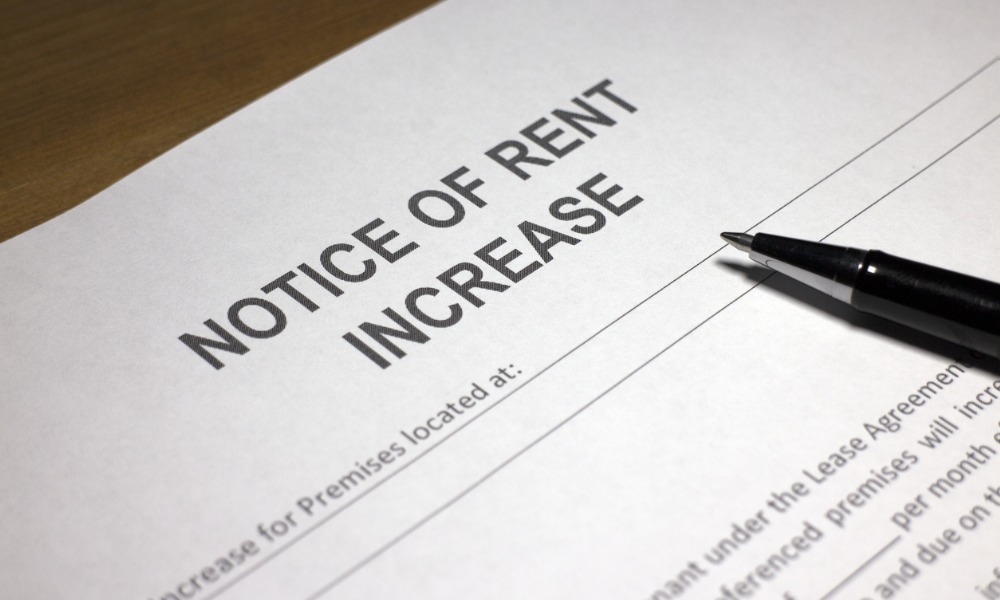A recent case sparks fears of widespread rent increases as landlords take advantage of a little-known provision

Tenant advocates in Vancouver are warning that a little-known rule that allows landlords in British Columbia to hike rents dramatically, sparking concerns that more tenants could soon face steep increases as mortgages come up for renewal in a high-interest rate environment.
Under BC’s Residential Tenancy Act, landlords are generally required to keep rent hikes within an annual cap — set at 3.5% for 2023. However, there’s an exception: if landlords face higher refinancing costs due to rising interest rates, they can apply to raise rents well beyond the cap.
This loophole was recently used to justify a 23.5% rent hike above the standard increase, alarming tenant rights groups.
Robert Patterson, a lawyer with the Tenant Resource and Advisory Centre, warned that the lack of a specific limit on how much landlords can ask for is particularly troubling.
"With this increase, there is no restriction. It can be anything," Patterson said. "How many landlords will try this? Are real estate investment trusts going to engage in this on a large-scale basis? And mom-and-pop landlords could do it on eight- or 10-units per building.”
The case that has tenant advocates worried involved a landlord, Kriss Canada, who purchased a fourplex in 2021 when interest rates were around 1.9%. As variable rates soared, the landlord argued the property’s mortgage had become unmanageable, and an arbitrator agreed, granting the steep rent hike.
Tenant advocates worry that the precedent set by this case will open the door for landlords across the province to impose similarly steep rent increases as mortgages acquired in the low-interest rate years of 2020 and 2021 come up for renewal.
What’s troubling advocates even more is the broader context. Many five-year mortgages taken out during the ultra-low-interest rate period of 2020 and 2021 are now coming up for renewal, which could see a wave of landlords seeking similar rent increases.
Patterson pointed out that while this provision in the Act has existed for years, it hasn’t been widely used — until now. He believes the recent ruling could spark a trend.
“The danger now is because this story has gotten traction because it has raised itself in the public consciousness again, and because the [Residential Tenancy Branch] in its decision has shown a willingness to enforce it, to allow arbitrators to award these rent increases, and that could be the blood in the water that brings the sharks out,” he said.
“Are there going to be institutional landlords, real estate investment trusts, that engage in this on a large-scale basis? That’s entirely possible, even if it’s sort of moderate-sized landlords, the ‘mom and pop’ landlord who only owns a couple of buildings that can still be six or eight tenants, if they’ve had to refinance and now, they’re paying a higher mortgage cost.”
Stephanie Smith, a long-time tenants' legal advocate, predicts a rise in applications for such increases.
“We have a housing market where it has become impossible in some places for a person, for a family, to own a home unless they become landlords and have basement suites,” Smith said. “That’s a symptom of a broken housing market.
“The expectations of rent from the tenant have become baked into housing prices. I would not want someone to lose their home if they can’t afford their mortgage payments on refinancing.”
Read next: Why are many borrowers still opting against variable rates?
While Smith acknowledged that some landlords are genuinely struggling with rising mortgage payments, she argued that tenants shouldn’t be expected to bear the financial burden
“I don’t think a healthy housing system allows for some people’s housing security to come at the expense of other people’s – and that is how the system is currently set up,” she added.
The issue could have political ramifications in the upcoming October provincial election. Andy Yan, director of Simon Fraser University's City Program, noted that renters make up a significant portion of voters in many ridings.
"With an increasingly contentious provincial election and many renters in the province facing increasing housing precarity, robust policies on security of tenure could determine who occupies B.C.'s legislature," Yan stated.
When asked about potentially repealing the provision, housing minister Ravi Kahlon told the Globe and Mail via email: “Since 2018, we have kept rental increases at or below inflation, below the rate set by the previous government.
“The policy that allows these kinds of exceptional rental increases because of financing is an old policy from the old government and this is the first time an application like this has been granted since we started collecting data in 2021. I know people have a lot of questions and I’ve directed staff to review this policy and how it impacts renters in the current context.”
Make sure to get all the latest news to your inbox on Canada’s mortgage and housing markets by signing up for our free daily newsletter here.



